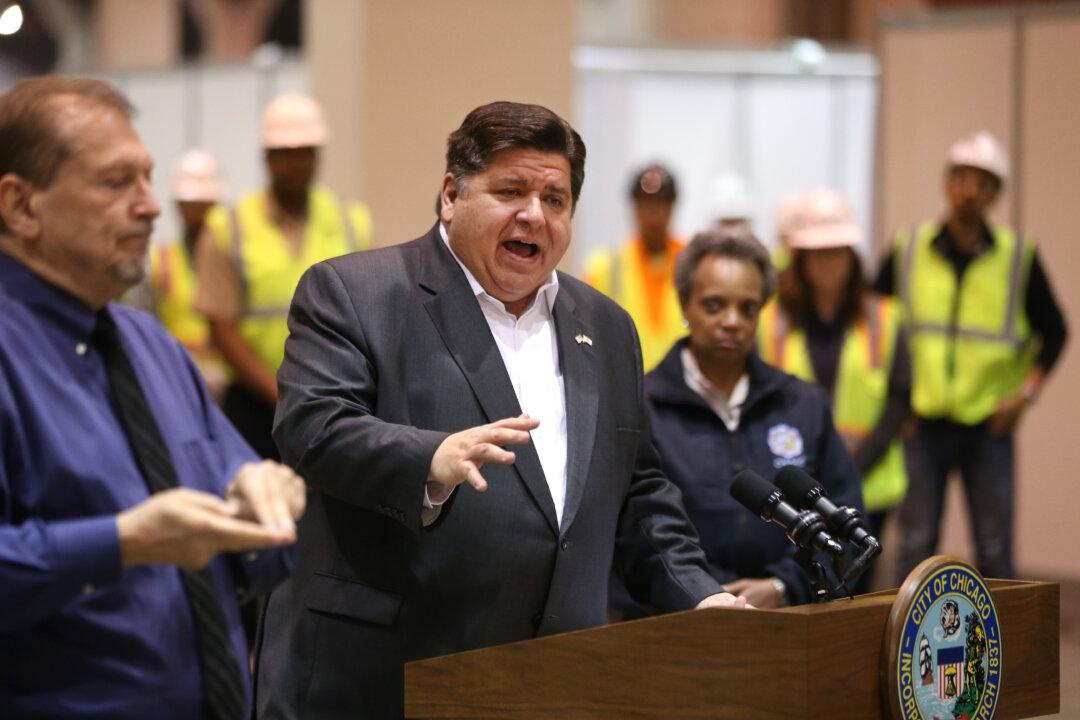
Illinois Gov. J.B. Pritzker speaks during a press conference at McCormick Place in Chicago, Ill., on April 3, 2020. Chris Sweda-Pool via Getty Images
CHICAGO—Thomas DeVore was the first lawyer to get Illinois Gov. J.B. Pritzker in court to defend his stay-at-home order.
And when a judge ruled in his favor, hundreds of small-business owners flocked to DeVore for help reopening despite Pritzker’s orders.





